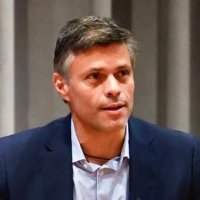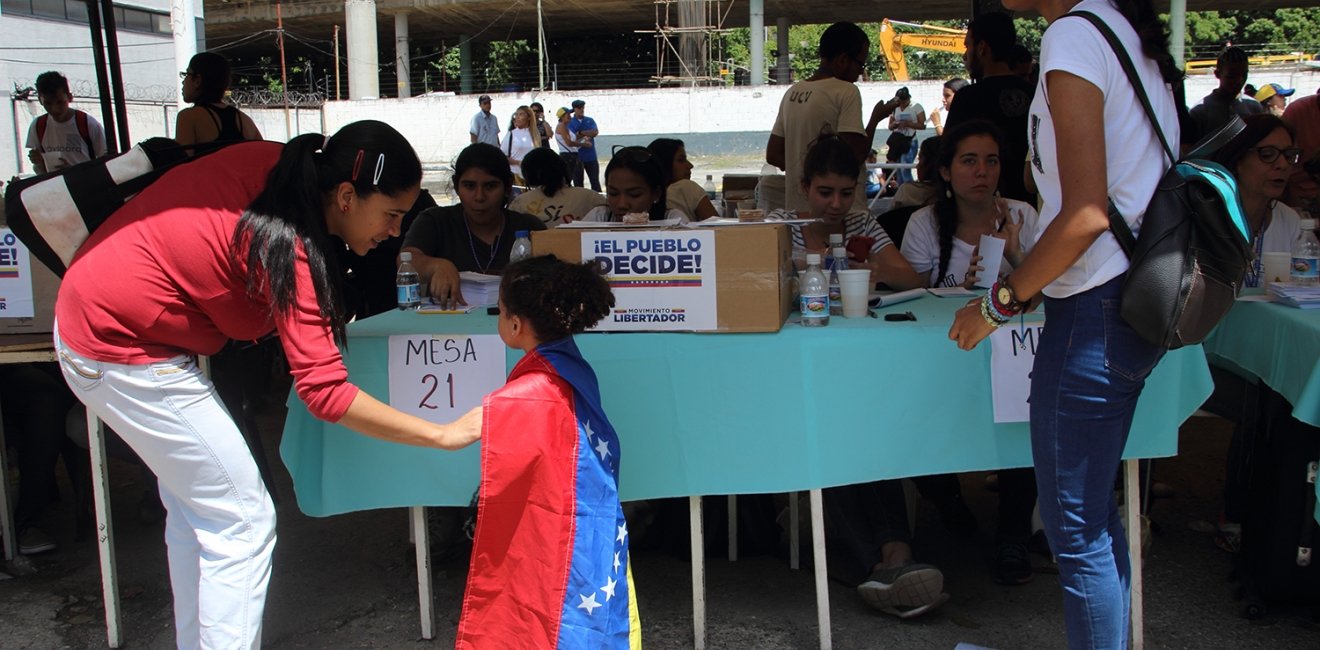
A blog of the Latin America Program
In Venezuela’s July presidential election, Edmundo González won 70% of the vote, a decisive victory that represented the Venezuelan people’s overwhelming desire for change. After years of living under Nicolás Maduro’s increasingly authoritarian regime, the election seemed to offer an opportunity for a peaceful transition to democracy. However, Maduro refused to accept the results. Instead, he unleashed a wave of repression, harassing González’s supporters, persecuting opposition leaders, and forcing the president-elect into exile in Spain.
This was not an isolated case. Venezuela’s experience reflects a global trend, where autocratic regimes manipulate elections to maintain power. They do not act alone; rather, powerful authoritarian allies, such as China, Russia, and Iran provide the resources to sustain their rule, even as domestic opposition builds. That leads to a troubling conclusion: elections alone are no longer enough to bring about transitions to democracy.
This was not an isolated case. Venezuela’s experience reflects a global trend, where autocratic regimes manipulate elections to maintain power.”
In Belarus in 2020, the popular opposition leader Sviatlana Tsikhanouskaya faced a similar outcome following a flawed election. Despite widespread public rejection, strongman Alexander Lukashenko claimed to attract 80% of the vote. As in Venezuela, the fraudulent results triggered mass protests. As in Venezuela, the government responded with brutal repression, arresting opposition leaders, cracking down on protestors, and silencing independent media. Supported by Russia, Lukashenko maintained his grip on power, ignoring international condemnation.
In Uganda’s election the next year, opposition leader Bobi Wine similarly challenged a long-time leader, President Yoweri Museveni, who has ruled since 1986. Wine, a charismatic musician-turned-politician, drew massive crowds to his rallies and was widely expected to triumph. Yet Museveni sought to reduce participation, arrested critics, and shut down the internet to disrupt his opponents and manipulate the outcome. Election observers noted numerous irregularities, but the military and regional allies helped Museveni weather the storm.
Last year, Thailand’s election demonstrated a similar pattern. The reformist Move Forward Party, led by Pita Limjaroenrat, won the most votes. But military and political elites blocked Pita from office through institutional machinations, backed by the military-appointed Senate.
Just last month in Mozambique, the ruling Frelimo party declared its candidate, Daniel Chapo, the winner of the presidential election, with 70% of the vote. Opposition candidate Venâncio Mondlane alleged widespread fraud and irregularities, sparking nationwide protests. International observers, including the European Union, agreed. Security forces, however, have responded with force, and the country remains in a state of turmoil.
Georgia also held elections last month, in that case for parliament. The ruling Georgian Dream party, backed by billionaire Bidzina Ivanishvili, claimed victory, amid accusations of voter intimidation and vote-buying. Pro-Western opposition parties disputed the results of the high-stakes election, a potential turning point as Georgia debates whether to align with Europe or Russia. Although foreign diplomats and international observers documented election violations, the Central Election Commission upheld the results.
These cases are not identical, but they reveal an emerging pattern of electoral fraud and post-election repression, even in instances where opposition victories are clear.”
These cases are not identical, but they reveal an emerging pattern of electoral fraud and post-election repression, even in instances where opposition victories are clear. Worse, these governments are taking steps to permanently sideline their opponents. González’s exile from Venezuela mirrors the experience of Tsikhanouskaya in Belarus. In Uganda, Wine faces threats and legal harassment. In Angola, UNITA leaders are subject to similar abuse.
What makes this pattern particularly alarming is the role of external actors, especially China and Russia. Eager to protect authoritarian allies, they are providing diplomatic, financial, and even military support for autocrats navigating electoral challenges. Maduro, for instance, relies on support from China and Russia to circumvent economic sanctions and international isolation. Likewise, Russia assists Belarus in suppressing dissent and avoiding international repercussions for human rights abuses and electoral fraud.
This trend raises questions about the role of elections in transitions to democracy. After all, while opposition movements are often winning the most votes, they face insurmountable obstacles to taking power, including falsified results and repression. The international community’s response is often limited to diplomatic condemnations and perhaps symbolic sanctions. More robust support is necessary for democratic movements fighting on the front lines, including assistance in strengthening electoral institutions, protection for opposition leaders, and coordinated pressure on autocratic regimes.
While opposition movements are often winning the most votes, they face insurmountable obstacles to taking power, including falsified results and repression.”
Without a stronger commitment from the international democratic community, autocrats will continue to steal elections, imprison opposition leaders, and silence dissent. This is not just a problem for the countries directly affected, but for democracy worldwide. As authoritarian regimes embolden one another, they threaten the global democratic order. Fortunately, there is still time to demonstrate a new approach in Venezuela, with the inauguration of its next president scheduled for January 10. Defenders of democracy should do far more to make sure the winner of the election is standing on that stage, to set a precedent that could inspire and protect democratic movements across Latin America and beyond.
Author

National Coordinator of the Voluntad Popular political party, Venezuela

Latin America Program
The Wilson Center’s prestigious Latin America Program provides non-partisan expertise to a broad community of decision makers in the United States and Latin America on critical policy issues facing the Hemisphere. The Program provides insightful and actionable research for policymakers, private sector leaders, journalists, and public intellectuals in the United States and Latin America. To bridge the gap between scholarship and policy action, it fosters new inquiry, sponsors high-level public and private meetings among multiple stakeholders, and explores policy options to improve outcomes for citizens throughout the Americas. Drawing on the Wilson Center’s strength as the nation’s key non-partisan policy forum, the Program serves as a trusted source of analysis and a vital point of contact between the worlds of scholarship and action. Read more

Explore More in Weekly Asado
Browse Weekly Asado
Dengue Haunts South America’s Summers

Lessons from Costa Rica’s Economic Transformation

Women and Latin America’s Digital Revolution

